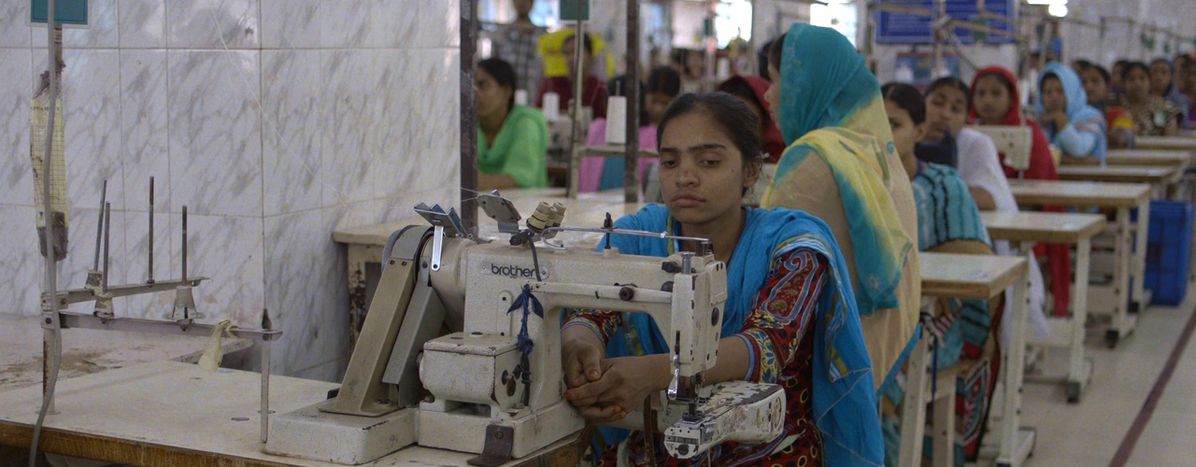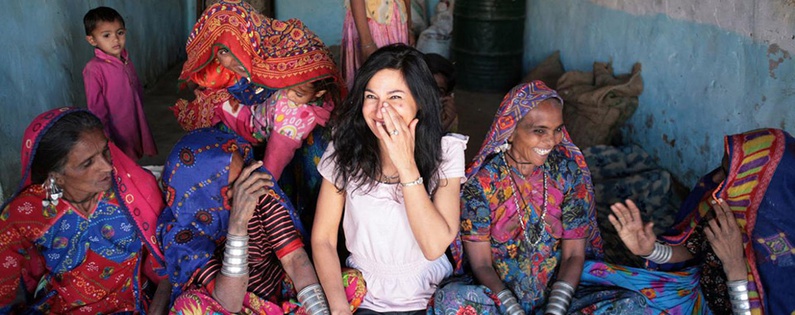
The True Cost: Fashion at what price? (2/2)
Published on
Translation by:
Emily SpencerIn response to the imminent opening of Belgium's fifth branch of Primark – and seeing as H&M owns 3,900 branches across 61 countries – the European Greens held a screening and post-film debate of the documentary "The True Cost" on the 2nd of March.
Read the first part of this article here.
---
Through fast-fashion, we're contributing to an unprecedented increase in the quantity of clothes being disposed of. The average American citizen is responsible for 37 kilogrammes per year. Donating clothes to charity is not necessarily a good solution; only 10% of items are sold in-store and the rest are sent to developing countries. The majority of clothing items are not reusable and tonnes of non-biodegradable material are accumulating in huge open air landfills, emitting toxic gases that are, over the course of decades, contributing to global warming.
People Tree: A utopia in a capitalist system?
The year following the collapse at Rana Plaza was the most profitable of all time for the fashion industry. The enormous profits of these major brands can be attributed to the work of millions of labourers, who themselves don’t receive any of said profits.
According to the economist Richard Wolf, the problem stems from the capitalist system, which is based on profit motives. Everything else is ignored and disregarded by the producer. Human rights violations, destitution, the destruction of nature and the deterioration of health – this is the real price of our clothing.
Alternatives are however emerging. Safia Minney created "People Tree" 25 years ago, to show that other business models were feasible. Today, the brand is sold in 1,000 shops and employs more than 7,000 people. "People Tree" works with a network of 4,500 artisans in countries such as the Philippines, Nepal or Bangladesh. These partners consider female empowerment, the social development of workers and the protection of the environment to be of utmost importance.
During his speech at the European Parliament, Safia Minney explained the impact of his organisation in more detail: 75% of their workers are female and assume 56% of management roles. "Women are the largest consumer base for fashion," he said, "and it's wonderful to see that the industry can also be a way of giving women who are economically marginalised the means to be autonomous."
The production of cotton plants can reduce the consumption of water by up to 60% in some areas. Cotton sold at a fair price enables small farmers to escape the poverty trap and develop their communities – by building wells and schools for example.
Consumers of the world, unite!
The majority of people choose their clothes according to price or style. Why shouldn't the conditions of production also be a deciding factor? An increasing number of consumers already consider this in other fields by choosing Fairtrade branded coffee and other products.
Yet such responsibilities do not rest exclusively with the consumer. Political leaders must begin legislating, including at the European level, to regulate the production practices of businesses. If brands choose to relocate their production centres, they shouldn’t have any possibility of shirking their social and environmental responsibilities.
It's by lobbying major brands that politicians and consumers will bring a change to this unjust and dangerous system. Politicians must put top-down pressure on businesses through law-making, while consumers should take a bottom-up approach. How exactly? By reading up on the practices of your favourite labels, by standing up for the rights of textile workers and by demanding a decent salary for those who we would quite literally be naked without. The Clean Clothes Campaign and its national members are doing great work on these issues.
Consumers have both great responsibility and great power. Without our money, these labels would collapse. Let's use our power to demand that they produce clean clothes. Let's tell them that we want to buy fashion without being complicit in perpetuating mental illness, cancer and suicide among labourers. They will have no choice but to listen to us.
---
This article was published by our local team at cafébabel Brussels.
Translated from The True Cost : la mode à quel prix ? (2/2)



